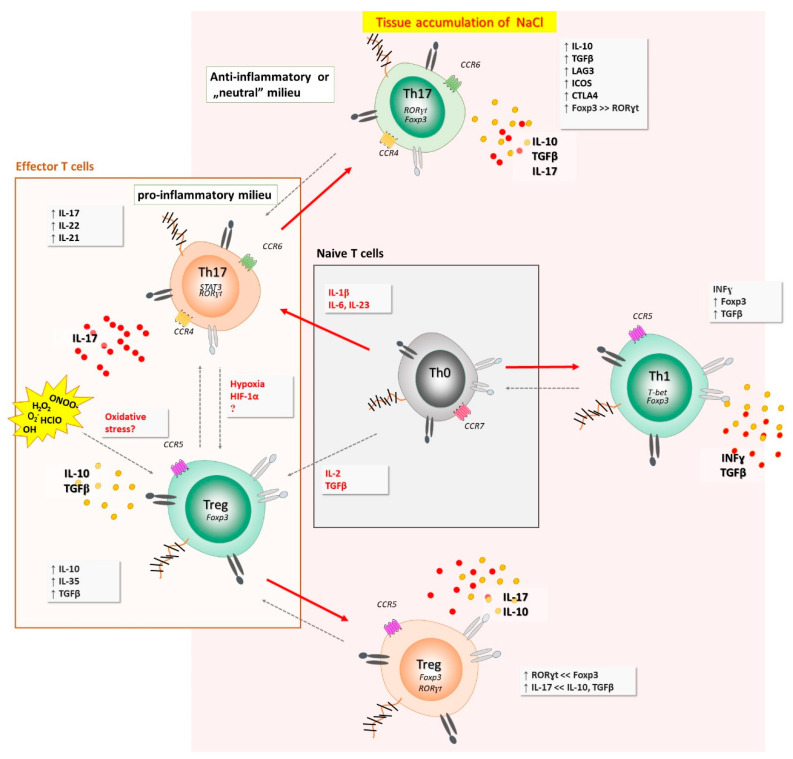Figure 6.
Dichotomous, context-dependent fate of T helper cells, when exposed to high-salt conditions. Naïve cell, exposed to hyperosmotic and pro-inflammatory environment, primed under Th17 polarizing cytokines, acquired enhanced Th17 function. This effect was also observed among other T helper cell compartments (i.e., Th1 subpopulation). Interestingly, if the Th17 cells are void of pro-inflammatory milieu during activation in high NaCl environment (and re-activation at the sites of ongoing immune responses against certain pathogens or (auto)antigens), they acquire anti-inflammatory phenotype and function, characterized by the up-regulation of IL-10, TGFβ, Foxp3, CTLA-4, ICOS, and LAG3. Increased oxidative stress may alter immune regulatory mechanisms, potentially via effects on Treg cells.

